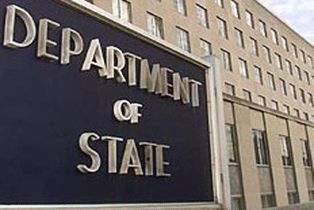Civil Georgia, Tbilisi
Despite some significant human rights achievements in 2010, main concerns remain about reported cases of abuse of prisoners, arbitrary detentions, selective application of law and pressure on businesses, according to the U.S. Department of State’s annual human rights report, released on April 8.
Among the “significant human rights achievements” the report lists implementation of a new Criminal Procedure Code, providing more rights of the accused; strengthening of the Public Defender's Office; construction of new prisons that met international standards and the first direct election of the Tbilisi mayor in May 30 local elections.
According to the report, allegations of selective application of law, wherein crimes involving government officials or supporters were slowly investigated and often remained pending and those involving opposition were investigated quickly, “led to allegations of impunity for government officials.”
‘There continued to be allegations of a lack of due process, government pressure on the judiciary, and that individuals remained in prison for politically motivated reasons,” according to the report.
It says that there were also reports of pressure on businesses “to suppress potential support for the opposition and independent media.”
“There also were credible allegations that businesses were pressured to contribute to the ruling party,” the report reads.
Like the previous report, covering 2009, the recent one again says that “there were credible reports that the government restricted freedom of speech and the press.”
The recent report again notes that level of petty corruption fell in Georgia since the Rose Revolution; it also says that “police corruption was low at the patrol police level.” The report, however, says that “high-level corruption remained a concern.”
“Observers considered the official anticorruption campaign too heavily focused on prosecution as opposed to prevention and unstructured rather than systemic and participatory. Areas of concern included democratic institutions, civil society involvement in the planning and execution of public policy, property rights, and elite corruption. NGOs also raised concerns about the government's connection to business and, in particular, corruption in the conduct of bids,” the report reads.
In an address via YouTube video dedicated to the release of the human rights country report, U.S. Ambassador to Georgia, John Bass, said that Georgia “made important strides, but there is still room for progress to better protect universal human rights.”
Those main shortcomings described in the report are of particular concern to the United States “given our administration’s commitment to the engagement, support and protection of civil society and human rights defenders,” Bass said.
“We also believe that stronger Georgian democracy requires the most competitive possible environment for the 2012 parliamentary and 2013 presidential elections. That’s why much of our assistance, including 60 million dollars in new investments this year, is focused on supporting electoral reform and strengthening the rule of law, independent media and civil society watchdog,” the U.S. diplomat said.
He said that senior U.S. officials, including Vice President Joe Biden, would continue to engage with senior Georgian officials about these issues.
A joint democracy working group in frames of U.S.-Georgia Strategic Partnership Charter will hold a meeting in Tbilisi later this month.
In his video address, the U.S. ambassador also mentioned recent events in North Africa and said, by quoting President Obama’s March 28 address on Libya, that “we must stand alongside those who believe in the same core principles that have guided us through many storms: our opposition to violence directed at one’s own people; our support for a set of universal rights, including the freedom for people to express themselves and choose their leaders; our support for governments that are ultimately responsive to the aspirations of the people.”
“I believe there are many people in Georgia inside and outside government, who are guided and motivated by these principles,” Bass said. “The debate here centers around how best to make them real for every Georgian. That debate should be strong, but peaceful and lead to change through institutions and ballot box.




